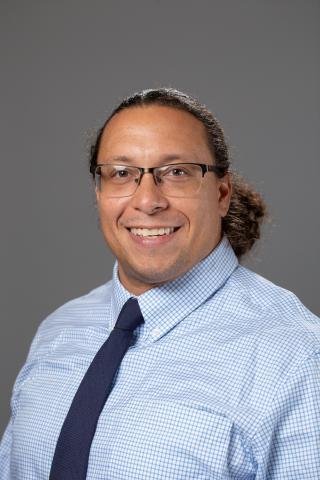UMD lecturer details experience during creation of AP African American Studies course
Shane Bolles Walsh attended a Conference on the creation of an AP African American Studies course last month (Photo provided by Walsh)
Update: The College Board has since released a statement saying that the course’s framework will be updated. The exact changes to the framework will be determined over the next few months.
An educator at the University of Maryland provided a first-hand account of the creation of the Advanced Placement African American Studies course, which sparked heated discussions across the country on how to teach history. He also discussed the immediate aftermath following the curriculum’s publication and future concerns about the course.
Lecturer for the University of Maryland’s Department of African American Studies Shane Bolles Walsh discussed his experience attending a conference hosted by the College Board in March 2023.
College Board invited a range of educators from around the country, in the hopes of receiving feedback from those who have taught the African American studies course. Points of discussion included the history of colorism, intersectionality and readings on notable Black scholars including bell hooks and Kimberlé Crenshaw.
Walsh said he is especially passionate about teaching Introduction to African American studies because it serves as a foundational base for the entire field of study. It also reveals how little students— especially Black students— are taught about their own social history or influence beyond their own individual experience, he said.
“There's not any genetically toted knowledge about the history of African American people and Black experiences just because you happen to be a Black person,” Walsh said.
Following the announcement of the course’s official framework, College Board received criticism for seemingly eliminating certain topics from the course. While earlier drafts of the course included readings and lessons on critical race theory, reparations, intersectionality, Black queer studies and the Black Lives Matter movement, a number of these subjects were made optional, though they were not banned outright.
The official course framework was released just eight days after Florida Gov. Ron DeSantis, based on a preliminary draft, publicly denounced the course. DeSantis said the course “lacks educational value.” Many people— including Illinois Gov. J. B. Pritzker— accused College Board of modifying the course to appease conservative critics.
College Board invited conference attendees to attend an African American Studies webinar which would address the controversies in further detail.
Professors that served as initial advisors for the curriculum discussed the backlash and provided rebuttals for certain points. They pushed back against claims that readings about prolific Black activists were removed from the course, stating that they changed how they were addressed in the final draft.
“They basically said that what Florida said we did, we did not do,” Walsh said.
The debate sparked concern about potential government suppression of what subjects can be taught in American classrooms. When asked if he had any concerns about the course Walsh stated that while he has no worries about the course launching in Maryland, many other states will likely experience some kind of pushback.
While there is a broad framework established to guide teachers, the finalized program will not be available nationwide until Fall 2023.
“I felt relatively confident, but show me the money,” Walsh said. “We're going to find out when we have students who come out of these courses and can speak [about the course].”

